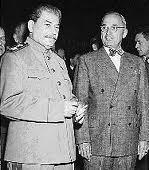Eyewitness to forced repatriation of Russian refugees by U.S. Army
R. R. Davison served as an American rifleman in World War II and later got a university education (probably on the GI Bill), eventually becoming a professor of Chemical Engineering at Texas A&M University. In 1983, he wrote the following letter to the editor at the Wall Street Journal.
[I confirmed Davison's identity by doing a search and coming up with this page http://books.google.com/books/about/Methyl_Alcohol_as_Motor_Fuel.html?id=Z1YaMwEACAAJ where I found the following information:
*A book by R.R.Davison published by Texas A&M University in 1974: Methyl Alcohol as Motor Fuel.
*Extraction Or Destruction of Chemical Pollutants from Aqueous Waste Streams, R. R. Davison, Environmental Protection Agency, 60pp, 1977.
*Economic Feasibility of the "Solaterre" System, on "Solar Energy," R.R. Davison, W.B. Harris, J.H. Martin, 58 pp, Department of Chemical Engineering, Texas A&M University.]

“I Thought Americans Were Good” 9-23-83
I have a question and an appeal regarding the Sept. 6 editorial page article on the post-WWII Russian refugee tragedy. Why does not someone, using the Freedom of Information Act if necessary, write a definitive history of the U.S. participation in this atrocity?
In August of 1945, I was a 19-year old rifleman in Company G 318th Infantry stationed in Kempten, Germany. One Sunday morning we were ordered into formation and issued ammunition. The company commander explained that our government had promised to return all the Russians that had entered Germany between certain dates. The Russians were refusing to go. Some had committed suicide and others had taken refuge in an orthodox church, claiming they would die there rather than return to Russia. Our orders were to load them on trucks for deportation, even if we had to kill them. Then the CO added that Stalin had promised that they wouldn't be harmed. A low laugh rippled through the formation, and to me that laugh is more significant than the brutality that followed.
We were battle-hardened veterans but most of us were in our late teens and twenties; yet we knew, even in 1945, that Stalin would probably kill these people. How then could our leaders, including Truman, not have known, or worse not have cared, especially in view of the trials about to begin in Nuremberg. Ironically, a few months later I was serving at the Palace of Justice in Nuremberg.
We marched down to the church and the people were inside. Another rifleman and I were left to guard the gate. All the gates were guarded and then a few score men went inside to clear the church. An old woman sprawled at the door apparently suffering a heart attack. Some of the people rushed for the gates, and about ten headed for my buddy and me. We threw our rifles to our shoulders and screamed halt. A shot rang from the courtyard and a boy in the group crumpled to the ground. My finger squeezed on the trigger and I was within a second of firing point blank into those people when they stopped.
A little old woman with tears running down her face and my rifle pointing at her head said in broken English, “I thought Americans were good.” I snarled at her to shut up. We drove the people into the middle of the courtyard and surrounded them with a corridor of soldiers leading to a gate. Here the trucks were loaded with several of the biggest men in the company lending a hand. One woman laid down and refused to get on and a big red-head picked her up and literally threw her against the far end of the truck. Another man had been shot besides the boy at our gate. They were both alive when carried off, probably to a hospital, and I have always thought that they were the lucky ones.
We willingly obeyed orders. No one complained. I remember no expression of guilt. The terrible truth is that we had a good time. A few months later at Nuremberg I guarded SS troops who were being used in work details around the Palace of Justice during the war crime trials. Most of them were very young, about my age. They had been drafted into the SS, but they were being punished for obeying orders.
PROF. R. R. DAVISON
Texas A&M University
College Station, Texas
Category
Germany, Law & Government, World War II- 877 reads









